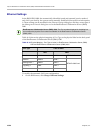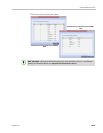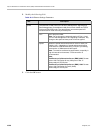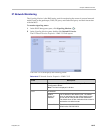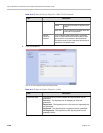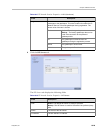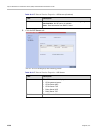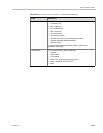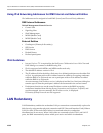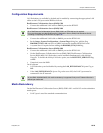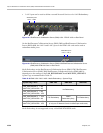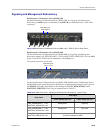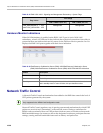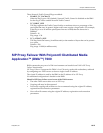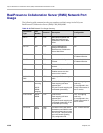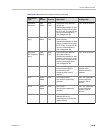
Polycom RealPresence Collaboration Server (RMX) 1500/2000/4000 Administrator’s Guide
16-32 Polycom, Inc.
Using IPv6 Networking Addresses for RMX Internal and External Entities
IPv6 addresses can be assigned to both RMX (Internal) and External Entity addresses.
RMX Internal Addresses
Default Management Network Service
• Control Unit
• Signaling Host
• Shelf Management
•MPM1 (Media Card)
•MPM2 (Media Card)
External Entities
• Gatekeepers (Primary & Secondary)
•SIP Proxies
•DNS Servers
• Default Router
• Defined participants
IPv6 Guidelines
• Internet Explorer 7™ is required for the RealPresence Collaboration Server Web Client and
RMX Manager to connect to the RMX using IPv6.
• IPv6 is supported with MPM+ and MPMx media cards only.
• The default IP address version is IPv4.
• The IP address field in the Address Book entry for a defined participant can be either IPv4
or IPv6. A participant with an IPv4 address cannot be added to an ongoing conference
while the RMX is in IPv6 mode nor can a participant with an IPv6 address be added
while the RMX is in IPv4 mode.
An error message, Bad IP address version, is displayed and the New Participant dialog box
remains open so that the participant’s address can be entered in the correct format.
• Participants that do not use the same IP address version as the RMX in ongoing
conferences launched from Meeting Rooms, Reservations and Conference Templates, and
are disconnected. An error message, Bad IP address version, is displayed.
IP Security (IPSec) Protocols are not supported.
LAN Redundancy
LAN Redundancy enables the redundant LAN port connection to automatically replace the
failed port by using another physical connection and NIC (Network Interface Card). When a
LAN port fails, IP network traffic failure is averted and network or endpoints
disconnections do not occur. When LAN cables are connected to both LAN 1 and LAN 2
ports, the RMX automatically selects which port is active and which is redundant.



